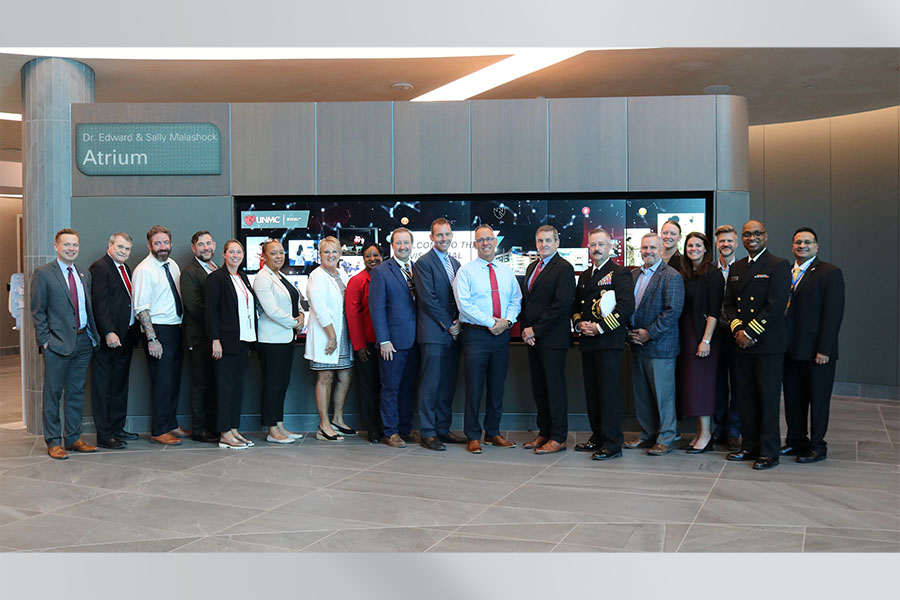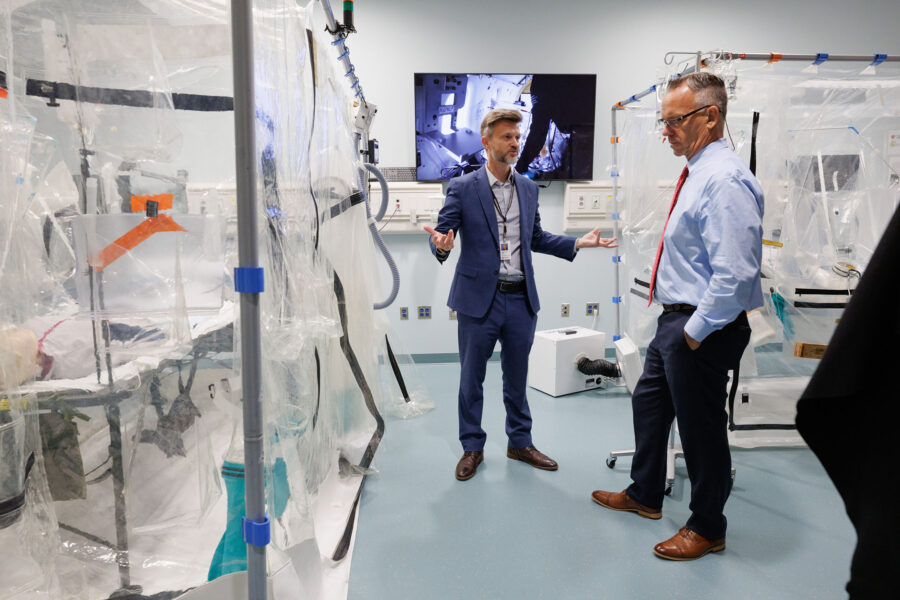UNMC welcomed John Knox, principal deputy assistant secretary for preparedness and response, and other leaders of the U.S. Health and Human Services’ Administration for Strategic Preparedness and Response on Aug. 21 for meetings with key leaders of the med center’s biopreparedness team.
The Administration for Strategic Preparedness and Response, or ASPR, is a critical partner in UNMC and Nebraska Medicine’s infectious disease preparedness and biosecurity efforts.
UNMC partnered with ASPR on development of the Training, Simulation and Quarantine Center at the Davis Global Center, which includes the 20-bed National Quarantine Unit. UNMC experts also have collaborated with ASPR and other national partners in development of the nation’s first Portable Biocontainment Unit.
Along with those efforts, UNMC partners with Emory University and New York Health and Hospitals in leading the National Emerging Special Pathogens Training and Education Center through ASPR, as well as operating the National Special Pathogen System of Care established by ASPR.
Knox, who has more than 34 years of experience in emergency response, disaster management and public health advocacy, praised UNMC’s amazing work.
“At ASPR, we value the partnership and the ability to work with incredibly innovative people that are willing to work in the operation space,” Knox said, calling UNMC’s operational capabilities crucial.
Knox said he came to UNMC to understand the assets available to ASPR and to continue to build the partnership.
Among the presentations was an overview of the Training, Simulation and Quarantine Center by John Lowe, PhD, director of the UNMC Global Center for Health Security.
Dr. Lowe said the med center’s health security team “stands at the ready” with facilities and personnel that the federal government can rely on.
He discussed the history of the med center caring for Ebola patients in 2014 and the subsequent creation of the National Quarantine Unit, built through $19.8 million in funding and a 25-year contract with ASPR.
On a tour of the full Training, Simulation and Quarantine Center, Dr. Lowe discussed a range of detailed features within the center, its operational history and protocols developed directly as a result of the team’s research and first-hand experiences.
“Our response partnership with ASPR puts UNMC experts on the front lines of health emergencies, which has translated to remarkable achievements to advance U.S. response,” Dr. Lowe said.
He cited UNMC achievements from the beginning of the COVID-19 pandemic that included: the first FDA-approved diagnostic test, led by Jana Broadhurst, MD, PhD; the first characterization of COVID-19 transmission, led by Josh Santarpia, PhD; the first cohort of COVID-19 research participants, led by David Brett-Major, MD, and the first COVID-19 clinical trial site in the U.S., led by Andre Khalil, MD.
Said Knox, “It’s truly amazing, the technology and, in the space of infectious disease, the thought that’s gone into decreasing the likelihood of transmission to the responder and caretakers.”

